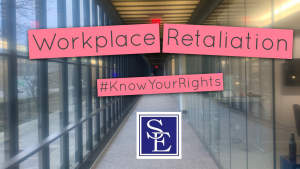The New Jersey Supreme Court issued a decision today invalidating a state employment regulation that required state workplace investigators to request victims and witnesses in harassment investigations to keep all aspects of the investigation confidential. The Court held that the challenged regulation, N.J.A.C. 4A:7-3.1(j), was unconstitutionally overbroad and struck the relevant portion concerning the confidenitialty directive. The decision is a major victory for employees and their rights to speak freely and openly about issues of workplace discrimination and sexual harassment. 
The challenge arose out of an employment lawsuit brought by a Department of Transportation employee who complained of sexual harassment and retaliation. After complaining to the Civil Service Commission about the sexual harassment, the employee, Viktoriya Usachenok, was interviewed by an investigator from the Division of Equal Employment Opportunity/Affirmative Action (“EEO/AA”) who required that Ms. Usachnanok sign a confidentiality agreement prohibiting her from speaking to anyone outside the state about her complaints of sexual harassment.
In her sexual harassment lawsuit, Ms. Usachenok brought a claim for declaratory judgment to invalidate a state regulation that required EEO/AA investigators to impose strict confidentiality upon victims and witnesses of incidents of harassment within state employment. In response to the lawsuit, the Civil Service Commission amended the regulation to require its EEO/AA investigators to request victims and witnesses to keep all aspects of their investigation confidential. The amended regulation was also challenged as a violation of state employees’ rights under the First Amendment and an unlawful restraint of protected rights under the New Jersey Law Against Discrimination.
 New Jersey Employment Lawyers Blog
New Jersey Employment Lawyers Blog

